Shikiryu PHP RSS Feed Reader and Generator
Read more at https://www.phpclasses.org/package/12385-PHP-Create-and-read-RSS-feed-files.html#2022-02-12-23:51:07
24 Lesser-Known HTML Attributes You May Want to Use – This rundown of HTML elements may contain a few items you weren’t aware of.
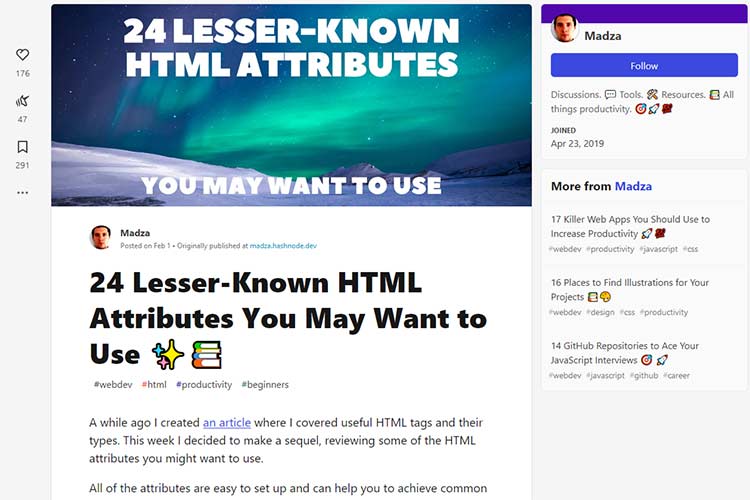
What’s New In DevTools? – Have a look at the latest tools available in Chrome, Edge, Firefox, and Safari.
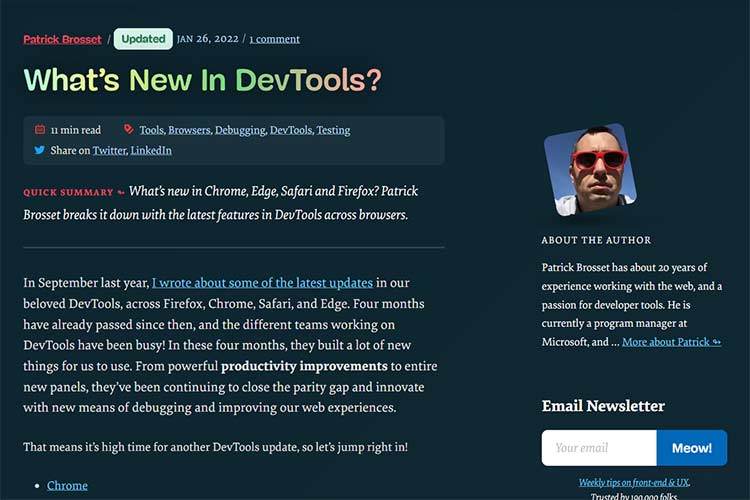
Why It’s Getting Harder to Trust the Software We Use – The combination of third-party dependencies and spotty maintenance should concern web designers.

Making the web better. With blocks! – Wouldn’t it be cool if blocks were interchangeable and reusable across the web?
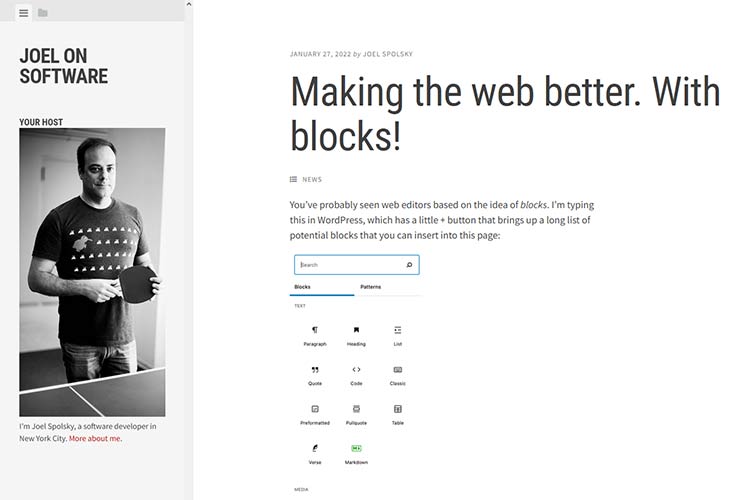
Mini Photo Editor – This Figma plugin allows for basic image editing within the design tool.

Why You Should Fire Your Worst Design Clients – If you’re afraid to turn down undesirable clients, perhaps it’s worth looking at things from a different angle.

Use Cases For CSS fit-content – A look at how this CSS property can be used in responsive design.
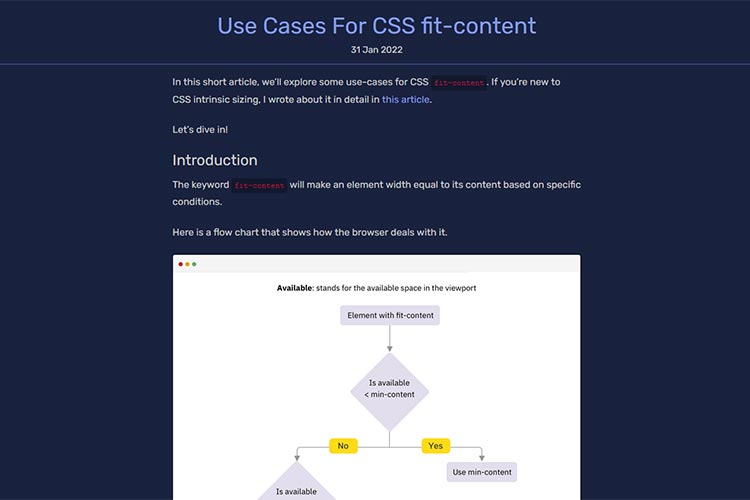
Make Free Stuff – The joy of building something that can be used with no strings attached.

Welcoming the new Search Console URL Inspection API – Learn more about Google’s API for accessing URL data outside of Search Console.
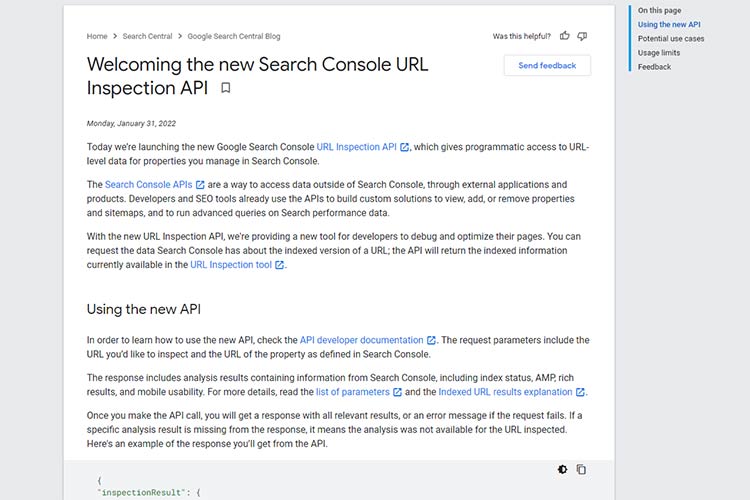
How Passion Can Help (Or Hurt) a Design Project – A look at when and where passion is appropriate in your projects.

Let Me Scroll – A library for creating custom scroll bars.
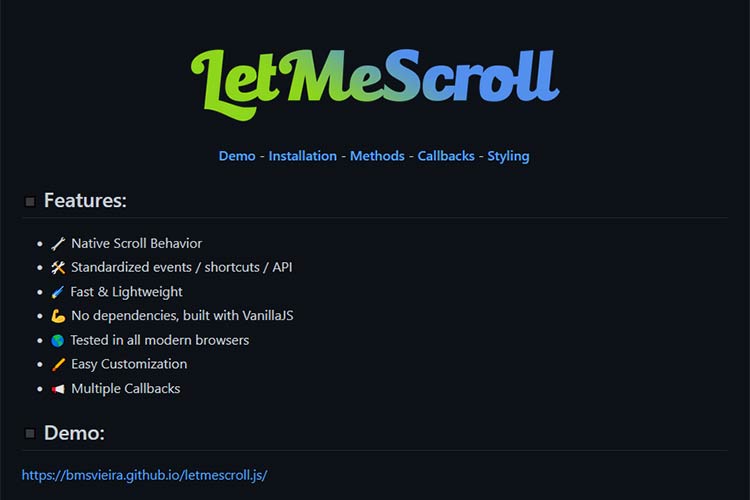
Top 20 Free WooCommerce Plugins for WordPress – Add useful functionality to your online shop without spending a cent.

Fluid type sizes and spacing – How to create a fluid type scale for a better responsive UX.

25 Tutorials for Mastering Adobe Premiere Pro – Level up your video editing skills with this collection of helpful tutorials.

Whirl – This library makes it easy to add a variety of fun loading images to your website.

How to Create a Headless WordPress Site With Faust.js (In 9 Steps) – Dip your toes in the world of headless WordPress with this outstanding guide.
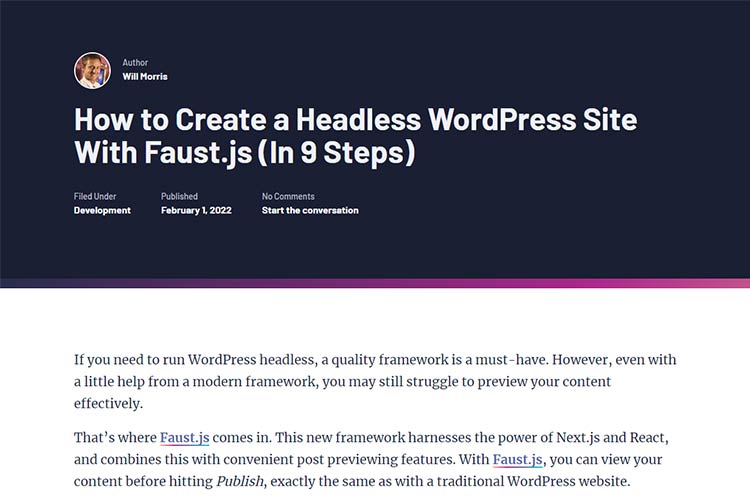
The A11Y Project Checklist – The issues this checklist prompts you to check for covers a wide range of disability conditions.

The post Weekly News for Designers № 630 appeared first on Speckyboy Design Magazine.

In life, there are certain situations where you probably shouldn’t press your luck. For example, if you see a cobra taking a nap, don’t poke it with a stick. And if you run across a busy web designer, don’t force them to change their workflow. In either case, you won’t like the reaction you get.
The industry seems to be going against the grain on that last one. New tools are continually being introduced – which is great. However, with them comes an expectation that designers will race ahead and dive in headfirst.
Or, at least it feels that way. It seems like we’re being pressured from all sides to adopt the “next big thing”, lest we be left in the dust.
In my thoroughly unscientific observation, many web designers appear to be frustrated with the state of things. Today, we’ll talk about why that is and how taking a step back could be the solution.
Nowhere is the seismic shift more visible than with WordPress. The massively popular content management system has undergone significant changes in the past few years. The Gutenberg block editor and its related features make for an entirely different experience.
Virtually every aspect of building websites and creating content has shifted. Depending on who you ask, these changes are either infuriating or the dawn of a new era. Regardless, there has been a great amount of pressure for web designers to adapt.
Whether it’s the editor itself or the introduction of block-based themes/Full Site Editing (FSE), there appears to be a good bit of sentiment that these changes are being forced upon web professionals.
That being said, there are alternative ways to use and build with WordPress. The Classic Editor is still supported, and the traditional methods of theme creation will continue to work. No one can fully predict the future, but it seems reasonable that they’ll be around for a while.
So, why would anyone feel forced into using something they aren’t very excited about? I think a lot of it has to do with how these new features are presented.
In the case of WordPress, Gutenberg became the default editor. It was front and center, whether you wanted it or not. And if you want to go back to the old way, you’re required to install a plugin.
Intended or not, this type of action establishes a narrative for users. It says, “The new way is here, and we want you to start using it immediately.”

Pressure doesn’t just come from software makers. It even goes beyond our peers and clients (as if that weren’t enough). Sometimes it can come from outside parties that have a vested interest in what happens on the web.
Take, for example, the various initiatives that Google has implemented over the years. Whether it’s a tweak to their search algorithm, the demands of its Core Web Vitals metrics, or the push for publishers to adopt Accelerated Mobile Pages (AMP) – the company holds a lot of sway when it comes to how we build websites.
It’s easy to see how web designers might feel at the mercy of this and other tech-heavyweights. We naturally want our websites to perform well and be easily found in search engines. Thus, it’s on us to integrate their recommendations and preferences into our work.
And it makes sense that we’d gravitate towards the companion products and services these companies offer. If we’re trying to satisfy a particular requirement, it’s logical to use tools that live within that ecosystem. They give us the best chance to succeed, even if we’re not thrilled at the prospect of using them.
Again, there’s a feeling of being forced into this type of arrangement. It’s especially relevant in client work, where your job is to provide the best path for achieving their goals. Sure, there are alternatives. But there is also risk in going a different route.

What does this all mean for web designers? For one, it can lead to frustration. Among the root causes could be the great investment we make in these tools and technologies. A lot of effort goes into learning them, only to feel as though the rug is being pulled out from underneath.
There can also be a bit of uncertainty. When it comes to new features, things tend to evolve quickly. What counts as a best practice today might be very different tomorrow. The result is that designers are left wondering about the right time to make a move.
In addition, the disruptive nature of such changes tends to throw a monkey-wrench into the daily workflow. Whether it’s a new editing experience or a different coding language, it can be a struggle to get up to speed.
For some, the change is all too much. I’ve seen several instances of designers and developers leaving behind both tools and communities that they’ve contributed to.
One can make the argument that there will always be some level of attrition. And while that’s true, it’s also a negative when longtime contributors become disillusioned to the point of walking away.
That’s not to say everyone will come to this conclusion. However, it does speak to the issue.

The way we work isn’t just a professional concern. For many of us, it’s personal. We get attached to not only the tools we use but also to the routines we form along the way.
As such, some changes can be especially challenging. Add to that the prominent way new features or standards are thrust upon us and it’s no wonder there’s a sense of being forced to comply.
Yet it’s also worth taking a step back and looking at the situation holistically. Quite often, there are still options within the CMS, framework, or service provider you’re working with. They may require some additional action on your part, but they’re available nonetheless.
Unless there is a major security or functionality concern, it’s usually fine to stick with your current workflow. That “amazing” new way of doing things will still be there (or not) whenever you’re ready.
And that’s the great thing about being a web designer. No matter what changes, you have a say in how you work. That’s worth remembering as the web keeps on evolving.
The post Why Some Web Designers Are Feeling Forced into Change appeared first on Speckyboy Design Magazine.
Google is sending out emails to businesses, using a type of scare tactic, to inform them that upcoming legislation could harm their business. In the email, they state that if legislative bills are passed, the changes could make it harder for customers to find your business, hurt your productivity, and cost your business time and money. In reality, the legislation is designed to ultimately protect businesses from companies like Google.
Above, you can see a copy of the email being sent to businesses, especially local businesses who have a Google Business Profile listing. The text of the email is below:
“The Senate Judiciary Committee recently voted to move forward a bill that would have unintended consequences for businesses like yours that use digital tools to reach customers. A similar proposal has already made its way through the U.S. House Judiciary Committee, so the threat is real.
If passed, these bills could disrupt many of the digital tools you rely on every day – including Google Ads and Analytics, Gmail and Docs, and your business listing on Google Search and Maps. These changes could make it harder for customers to find your business, hurt your productivity, and cost your business time and money.
If you’re interested in learning more about these bills, their impact on your business, and what you can do about it, we invite you to sign up to stay informed.
— button to ‘opt in’ to receiving Google’s emails like this one —
By clicking this button I consent to have Google contact me about legislative and regulatory issues, events, and advocacy opportunities related to my business.
Google’s public policy team is working with members of Congress to share concerns about how these bills could impact businesses like yours. Together, we can be an important voice in the policy conversation about the regulations that affect you and your business.
Thank you,
The Google Customer Solutions Team
Google ”
Even after signing up, which I did for one of the emails I received like this one, you’re just taken to a confirmation page that says that you’ve opted into receiving the emails about “digital regulation”. There are no specifics about what Google’s concerned about, and what bills specifically are an issue for them. You would think that after you signed up, they might take that opportunity to direct to you to one of their recent blog posts, such as this one, where they posted about legislation that could affect your business. In one particular blog post, titled, “The harmful consequences of Congress’s anti-tech bills”, Google admits that 90 percent of Americans like our products and services:
Every day, millions of Americans use online services like Google Search, Maps and Gmail to find new information and get things done. Research shows these free services provide thousands of dollars a year in value to the average American, and polls show that 90% of Americans like our products and services.
Do you think that it’s 90 percent of Americans like Google’s products and services because they have chosen to use Google’s products or services? Or is it actually that 90 percent of Americans don’t really have a choice but to use Google’s products or services. For example, there are really only two choices of cell phones in America that we can use: Apple or Android. Many choose Android because it “costs less”. And, Google’s made sure that even Apple users use their search engine rather than another. Google’s literally paying Apple to stay out of the search business.
Google goes on to say that legislation could actually break these services, damaging American competitiveness:
“…legislation being debated in the House and Senate could break these and other popular online services, making them less helpful and less secure, and damaging American competitiveness.”
Wait, what?!? Google’s saying that if Google’s services are broken up, broken up into separate companies, they would be less helpful and less secure? And damage American competitiveness? They’d be less helpful, because Google wouldn’t be able to share data about you with their other divisions, and therefore there would be less customization of your search results. Less customization of ads that they put in front of you. Less secure? I am not sure about that. But if Google’s broken up into separate companies, how will it damage American competitiveness? I see it quite the opposite. In fact, it would open it up to American companies actually being able to compete with the behemoth that is Google. Consumers might actually have a better choice of which map service to use, rather than being forced to use Google Maps.
Google, in another statement, goes on to say that it will be TOUGHER for consumers to find your business. They give the example of when Google Maps wouldn’t be allowed to be integrated into Google’s search results if bills are passed:
If passed, these bills could cost your business time and money by:
Making it harder for customers to find you because your business listing (including your phone number, address, and business hours) may no longer appear on Google Search and Maps.
Here is the example that they give us:
Oh my gosh, I cannot believe that this is the example that Google’s actually giving us. Let’s think about this for a second. If Google is not allowed to show Google Maps data in their search engine results pages, then Google might actually be forced to show the local businesses’ websites at the top of the search engine results. A searcher might actually have to click through TO THE LOCAL BUSINESS WEBSITE in order to find their phone number and contact information. Rather than just seeing that information in the search engine results, and clicking on the Google Maps listing and never leaving Google. Oh the horror! What would we do if we actually had to click through and visit a local business website! (Of course, I’m being factious here.) What local businesses want, and what business owners like myself want, is for searchers to visit our websites. That’s why we create them. Google has been focused on keeping visitors on Google-owned properties and NOT letting them leave. That’s how they make money. The longer someone is on a Google-owned property, the more money they can make through advertising.
So now do you see why Google’s trying to scare us, scare businesses into thinking that it would be BAD if Google was broken up into separate companies? Would it be such a bad thing if Google Maps, Google Advertising, Google Search, and Android were all separate companies? What’s the worst thing that could happen? When we went to Google, we’d actually have to click through to a local business website in order to get directions, get the phone number, or contact them.
The overall message I’m getting for Google, as a consumer and as a business owner, is “If this legislation passes, it’s going to affect your business.” I actually read this as, “We don’t have any valid reason as to why we shouldn’t be regulated, so let’s pass the buck and make business owners think that it’s going to have a huge impact on them. Tell them they’re going to lose customers and lose business and it will affect their bottom line because they might have to start using a service other than Google to find their business.” Of course that’s an just me over exaggerating, but now that I think about it, it might not be too far off. If Google is broken up into separate businesses, and actually regulated, I think this will be good for businesses, rather than what Google wants businesses to think. Consumers will still go to a search engine or go online to find a local business near them. That’s NOT going to stop, and honestly it will NOT be harder for customers to find them. There will be another search engine, another source for local maps data, I guarantee it.